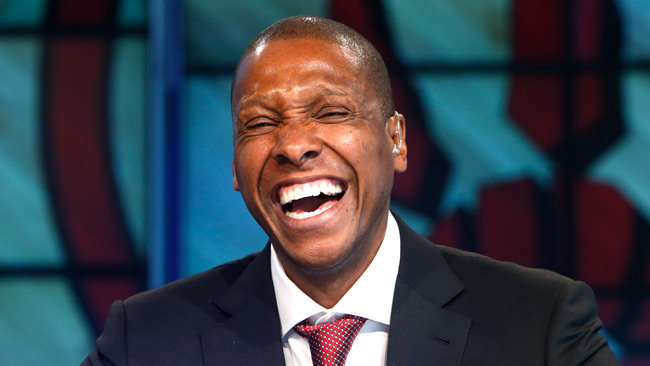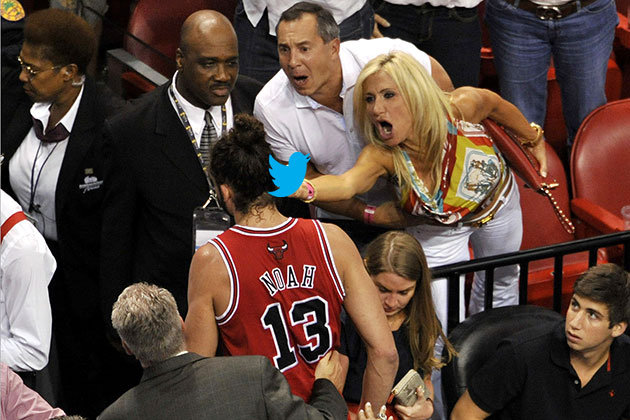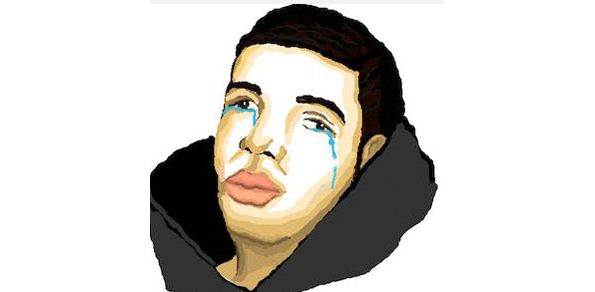When Masai Ujiri got a five-year deal from the Toronto Raptors last summer it signalled one thing above else: you have time. Unlike Bryan Colangelo, who treated every season like it was his last in Toronto (and, in fairness, his and Chris Bosh’s contract situations often pushed his back against the wall), Ujiri was afforded a half-decade to turn around his new (old) club and the implication was that MLSE wanted him to make use of it.
Of course, circumstances have a funny way of infringing on the best of intentions. The Raptors were supposed to be a long-term project, but then they started winning lots of games, Kyle Lowry and DeMar DeRozan became All-Star calibre players and all of a sudden expectations began to rise and now the grace that the five-year deal was meant to afford seems suddenly irrelevant.
Now, it’s not as though the Raptors have arrived yet. They still have a loooooong way to go before they crack the elite clubhouse they are dying to gain entry to. Still, the events of the last two months have at least demonstrated that they may be one rung higher on the ladder than they thought when the season tipped-off, and that means that certain expectations have to be readjusted accordingly. If the team isn’t tanking, then they are building. No, Ujiri isn’t under any pressure to make quick moves to capitalize on what may well be an ephemeral post-trade improvement, but he shouldn’t simply ignore the momentum that the club has begun to generate, either, just because he has time to play with.
The Raptors are in an interesting spot when it comes to the trade market this winter. They have several interesting assets, including a borderline All-Star in an expiring contract (Kyle Lowry), a borderline All-Star on a multi-year contract (DeMar DeRozan), an emerging swingman that is shooting over 40% from three and plays defence (Terrence Ross), a highly regarded big man that is still early in his rookie deal (Jonas Valanciunas) and a stat-guru’s object of adoration (Amir Johnson). They also have interesting throw-in assets like a three-point marksman (Steve Novak), a rugged, veteran post defender (Chuck Hayes) and a better-than-average backup point guard (Greivis Vasquez). Put all of that together and the Raptors are in a position to go shopping if Masai Ujiri sees something he likes in a store window.
Aiding their cause is the fact that they are well-positioned when it comes to cap space this summer. That means that they have the resources to augment their roster as needed this summer as well as the flexibility to re-sign players (be it their own or trade targets) if they so desire. If Ujiri has done nothing else in his brief tenure as Raptors GM to date, he has given the team options – even if some of those options include leveraging assets that were acquired by his predecessor.
All that said, though, none of those assets are as interesting to me as that bight, shiny, 2014 draft pick currently sitting in Ujiri’s back pocket. Should the team consider packaging it in a deal? Heresy, you say! Well, like with any potential trade, it’s all about the return, and with the scarcity of available picks for this draft, the Raptors might be able to turn theirs into something a lot better than what a 17-through-22 pick might yield.
As with any asset, scarcity creates value. In year’s past, draft picks were tossed around carelessly and teams started to get severely burned when the picks were actually transferred. Now teams are clutching 2014 picks to their chest like they represent a one-way ticket to the NBA Finals. No one is moving them. They have begun generating a mythic value, and that is a perfect scenario for a GM like Ujiri to jump into to extract high value for what is fast becoming an overrated asset.
For instance, the Raptors could lump that pick with Ross to make a push for Greg Monroe, a player that Detroit has to be seriously considering moving given how poorly he, Andre Drummond and Josh Smith have meshed.
Or, the Raptors could try for the big fish and make an offer to Minnesota for Kevin Love, packaging DeRozan, Valanciunas and the pick and daring the Timberwolves to pass. Minnesota probably would pass, too, but Ujiri has put himself into a position to make that call credibly, and part of the job of the GM is to make (and take) those calls to see what options are out there.
The fact is that if the Raptors aren’t tanking, then they’re building, and if they’re building then these are the kinds of moves that they have to be (and most likely are) pursuing. Not these moves exactly, but moves of this nature. Moves that push the needle ahead of where it is now in a meaningful way. If Ujiri isn’t tanking and he wants to avoid living in the middle then eventually he’ll have to make a big move for a big player since it appears like the Raptors don’t have a big player currently on the roster.
That doesn’t mean that Ujiri has to do anything today. It doesn’t even mean he has to do anything this season. However, the team that he oversees has created its own momentum and Ujiri can’t (and probably has no interest in) simply ignoring that development because he has a long-term deal and oodles of job security.
This also doesn’t mean Ujiri has to “Go Colangelo” and jump at the first name that crosses his desk. Ujiri was hired for his mindfulness in situations like these. If he can’t land an impact player then he will continue improving the team in small ways internally. He won’t sit still. In sports if you aren’t getting better you’re getting worse. The Raptors are on an unexpected upswing and this trade deadline represents the first time Ujiri has to make a decision as the head man of the Raptors (in this scenario, doing nothing represents a decision if that’s the route he decides to take). He may not make his big move just yet, nor does he have to, but know that the Raptors’ play this season has created a new operational mandate that doesn’t adhere to the same elongated timeline as the one Ujiri walked in the door with.



